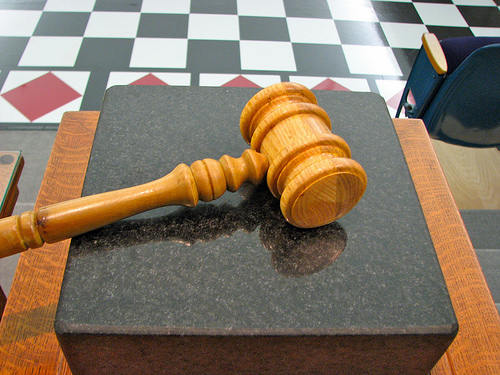If selected for jury duty, leave your cell phone at home

When you turn 18, you will be eligible to serve on a jury. Jurors are called up from voter registration lists and motor vehicle records if you have a driver’s license. You could be summoned to court for a day or longer depending on the length and type of case being tried.
Cell phones and other devices are so much a part of your life that it’s easy to forget it’s on you. When you first appear at court, you will be given specific instructions about use of your phone. In fact, if you are selected to sit on a jury, the judge will remind you about all forms of communication during the trial. Since a jury’s duty is to decide the facts of a case from only the evidence presented and then apply the law as given to you by the judge to the facts, all other sources of information are prohibited until the trial is over. In other words, as a juror, you are forbidden from doing your own research online until the case is over.
The judge will instruct you to avoid watching the news or accessing any information about the case except what is presented in the courtroom. A common instruction at the beginning of the trial is not to discuss the case with anyone, including your fellow jurors, until the trial ends and you’re excused by the judge. This may be difficult especially if you’re sequestered (locked up) during the trial. That doesn’t mean in jail – a sequestered jury means all ten or twelve members of the jury stay together in a hotel until they reach a verdict and are allowed to go home. The temptation to email someone, text or post a comment on Facebook is great – but the consequences are even greater. Consider the following real examples of jurors’ bad behavior during a trial:
 Erickson Dimas-Martinez was convicted of murder in 2010. On appeal, the Arkansas Supreme Court tossed out the conviction and ordered a new trial. Why? Because a juror tweeted about the case during the trial.
Erickson Dimas-Martinez was convicted of murder in 2010. On appeal, the Arkansas Supreme Court tossed out the conviction and ordered a new trial. Why? Because a juror tweeted about the case during the trial.
Juror L blogged six times about a wrongful death case she was hearing in Illinois. Other members of the jury told her to stop and to keep an open mind. In October, 2011, The Court of Appeals upheld the multi-million dollar verdict in favor of the decedent’s widow, but chastised Juror L over her disregard of the judge’s ban on communication.
 During a child sexual assault trial in July, 2011, juror Lawrence Toppin conducted his own research online about certain legal terms. He brought his notes to court and shared them with his peers on the jury. The foreman reported this and the judge declared a mistrial. This was after a week of trial and five days of deliberation by the jury. Toppin was not found in contempt of court because the judge felt it wasn’t a willful act. Had he been found in contempt of the judge’s order, he would have faced a jail-term or heavy fine.
During a child sexual assault trial in July, 2011, juror Lawrence Toppin conducted his own research online about certain legal terms. He brought his notes to court and shared them with his peers on the jury. The foreman reported this and the judge declared a mistrial. This was after a week of trial and five days of deliberation by the jury. Toppin was not found in contempt of court because the judge felt it wasn’t a willful act. Had he been found in contempt of the judge’s order, he would have faced a jail-term or heavy fine.
(Note: thumbnail photo by Bill Bradford,Flickr)



On a side note, jury duty can be a great experience and I strongly recommend that everyone sit on a jury once during their life.
Thanks for your comment, Matt. It’s unfortunate that it’s not as easy as showing up for your jury call. Judge Tom was summoned for jury duty in federal court this month. The case involved a murder charge against a woman who was driving drunk, hit two children on a sidewalk, killing one of them. Sixty people were questioned on the jury panel and 14 were selected: twelve jurors and two alternates. Judge Tom didn’t make the cut, especially after answering a question from the defense regarding his past experience as a prosecutor and attorney for Child Protective Services. Maybe next time.